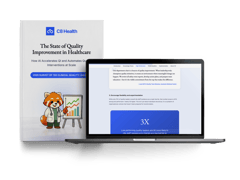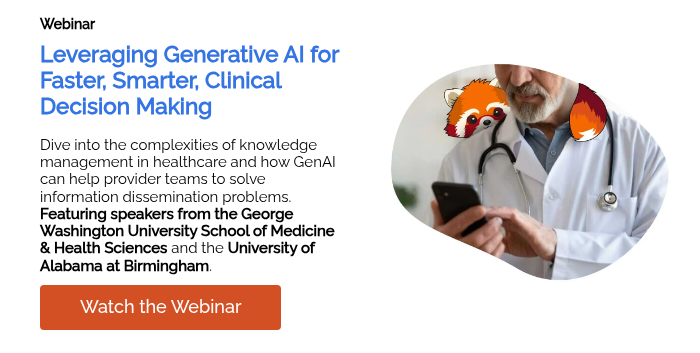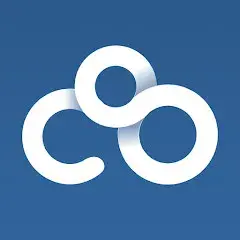
What Is the Meaning & Importance of CRM Database for Medical Workers
Healthcare CRM software lets you communicate with patients while automating and streamlining administration. These systems and apps are built on powerful databases that capture complex patient information. But healthcare systems are often siloed and integrating data across systems is challenging. What's more, protecting patient privacy is key while ensuring you have enough information to populate the system.
With a well-consolidated CRM database you'll be able to collect all your data in one place, while ensuring your customers-or patients-feel well cared for. Let's take a look at the importance of CRM databases for medical workers.
Meet the Expert
Mical DeBrow is an accomplished healthcare leader and clinician with extensive expertise spanning pharma, healthcare payers and providers, and healthcare information technology.
» Looking for a system to manage your information? Find out all about knowledge management in healthcare
CRM Software vs CRM Database: What's the Difference
CRM software is the entire application used to manage patient relationships. It encompasses features like patient information and test results, communication tools, reporting and analytics dashboards, and marketing and outreach tools.
A CRM database is the specific component within the software that stores and manages patient information.
» Streamline your institution's admin with this easy solution
The Role of CRM in Healthcare
With advancements in medical technology, a CRM is no longer just a tool for gauging patient satisfaction from appointment times and clinician responses. Today, it's a powerful system that collects and organizes patient data.
This breaks down information silos, and enables data sharing and analytics for deeper insights. It also promotes smooth communication and operational efficiency. But none of this is possible without a robust database. Let's take a look at the key benefits of this database.
4 Benefits of CRM Databases for Medical Workers
1. Data Accessibility
CRM databases store a variety of data, including test results, patient interaction data, and billing and insurance information. What's more, this information is kept in a structured and organized manner. So medical workers can easily access and retrieve patient information from a central location, unlike scattered paper records or disparate systems.
And this centralized access translates to increased operational efficiency. Instead of searching through various files or folders, medical workers can quickly find the information they need to make informed decisions and provide better care.
2. Improved Decision Making
CRM databases allow medical workers to access a comprehensive view of a patient's medical history, including allergies, medications, past procedures, and treatment plans. This holistic view provides critical context for diagnosing and treating patients effectively.
By analyzing data from past cases and identifying treatment patterns, medical workers can make decisions based on evidence rather than solely on individual experience. This leads to more consistent and effective care for patients.
Our latest webinar covers how AI can help with the decision-making process alongside CRM databases. Watch it to learn more.
» Discover why data-driven decision making is so important.
3. Security and Compliance
CRM databases can help healthcare organizations comply with specific rules and laws, including those of HIPAA (Health Insurance Portability and Accountability Act) and GDPR (General Data Protection Regulation). These regulations dictate how patient data must be collected, stored, and accessed.
Many of these systems are also equipped with strong security measures such as encryption and user authentication to safeguard patient data from unauthorized access. Access to the database can be controlled on a need-to-know basis, enhancing the security of confidential information.
4. Integration Capabilities
In an ideal world, CRM databases will integrate with existing healthcare software such as electronic health records and practice management systems, or scheduling tools. This means there will be a seamless flow of data, eliminating the need for manual data entry and reducing the risk of errors.
5. Prevention of Errors
Having the right information available at the right time can prevent errors and adverse events. This is because medical workers can make more informed decisions, minimize the risk of medication mistakes, and identify potential complications earlier.
I recently got called in on as an expert witness on a case in which a nurse performed a task beyond her scope of practice, leading to the unfortunate death of a patient. This could have been avoided if the necessary data, indicating the need for a differently credentialed professional, had been readily available to her through the system. The incident has resulted in significant financial and disciplinary consequences for the health system and the nurse, respectively.
» Looking to manage risks? Discover the key strategies to reduce medical errors.
The Challenges of CRM in Healthcare
Seamless integration of various systems can seem daunting and expensive, but it's crucial for smooth operations and easy access to data. Picking the right system from the start sets up a lasting, effective partnership.
On the compliance front, too many people have access to confidential information they shouldn't. Compliance isn't optional-there are specific rules, laws, and penalties. Many health systems think they can handle compliance themselves until they face an audit and panic.
Access control should be strict and based on a 'need-to-know' basis to comply with laws and protect sensitive patient information. The approach to compliance should be smart and standardized across all healthcare systems.
The Importance of CRM in the Patient Lifecycle
While CRM databases are essential for medical workers who wnt to work on systems with integrated, easy, and mobile access to important information, they're just as necessary for patients too. Patients who can get their hands on their own records and medical history, and any relevant healthcare resources, can be empowered in their own healthcare journey too.
So great CRM systems are built on valuable, complete databases. The key here is finding ways to integrate data across systems while protecting patients and adhering to guidelines.


